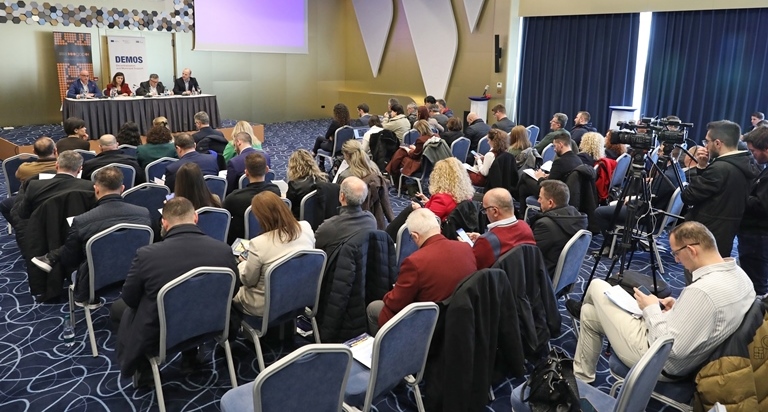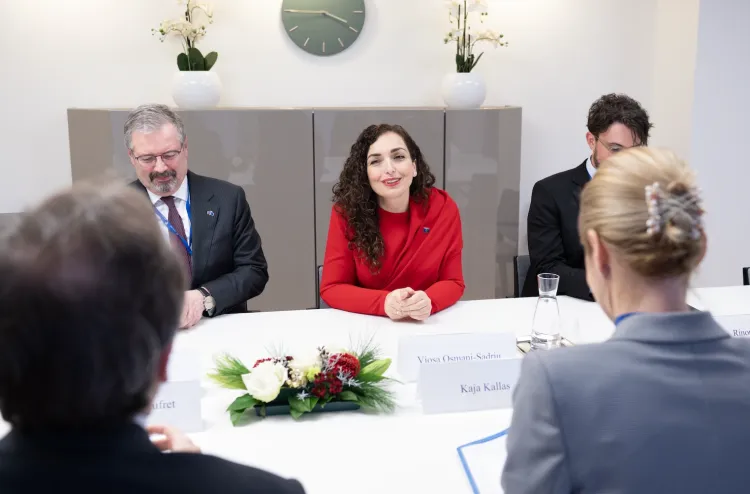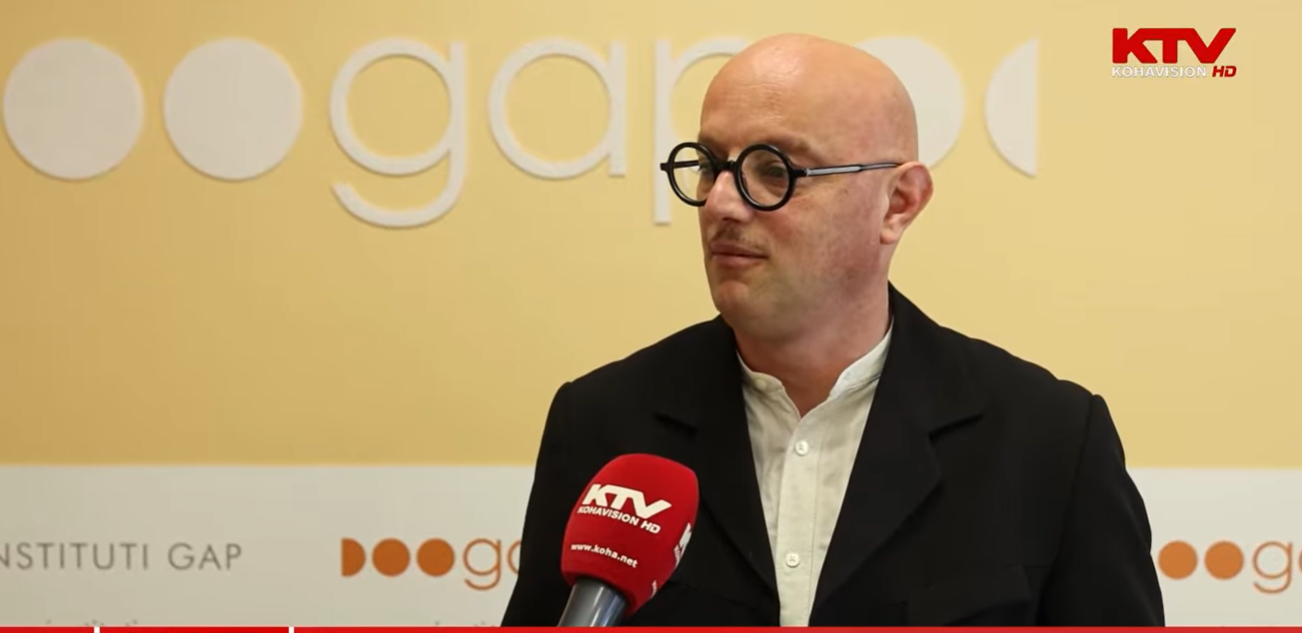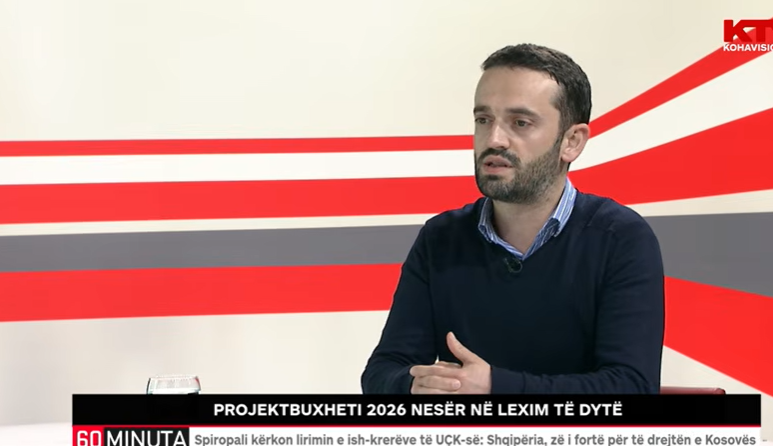Practices of 15 Municipalities in Allocating Capital Investments Across Localities 2018–2023
27/02/2025
GAP Institute and Helvetas/Project for Decentralization and Municipal Support (DEMOS), co-financed by the European Union, Switzerland, and Sweden, presented today the report “Practices of 15 Municipalities in Allocating Capital Investments Across Localities 2018–2023.”
GAP Institute analyzed the potential and trends of 15 municipalities in utilizing their budgets for capital investments and the amounts of financial resources allocated to rural localities. The presentation took place during a discussion roundtable attended by representatives of the municipalities covered in the report as well as donor representatives.
Bekim Salihu from GAP Institute presented the report’s findings, highlighting that the distribution of of funds across rural areas shows significant inequalities. In some municipalities, specific locations have received large amounts, while others have received little or no investment. With the exception of Juniku and Gračanica/Graçanicë, that do not specify which localities benefit from their budgets, the other 13 municipalities include a total of 595 localities. Of these, 166 locations (28%) did not receive any capital investments, 193 locations (32.5%) received partial funding (in at least three out of six years), while 236 locations (39.5%) benefited each year or at least five out of six years during the 2018-2023 period. Although most capital investment budgets are spent on infrastructure, many municipalities face challenges in fulfilling electoral promises related to this area. GAP Institute recommends increasing investments in rural areas, including previously unaddressed localities in future investments, diversifying investments beyond infrastructure, and organizing more budget hearings.
Majlinda Jupolli, Deputy Manager of the DEMOS project, spoke about the support the project has provided in improving municipal capacities for early budget planning, enhancing access to public information, and engaging citizens in decision-making processes.
Salvador Elmazi, Director of the Budget Department at the Ministry of Finance, Labor, and Transfers, emphasized that since 2019, both total capital investments and their implementation have shown an increasing trend. He highlighted that the findings from this report could serve municipalities as an opportunity to improve the budget drafting process. In conclusion, he pointed out that one of the major issues municipalities face stems from collective contracts, where enforcement decisions have worsened the implementation of capital investment projects.
Drilon Shala, a representative of the DEMOS project, stated that research findings indicate that the majority of localities inhabited by non-majority communities, except for Dragash and Prizren, benefit little or not at all from the budget category allocated to capital investments. Despite satisfactory participation of women in some municipalities, the overall low citizen participation in budget consultations remains concerning. He also added that in order to ensure the proper implementation of projects without irregularities, adequate planning of capital investments is essential.
Municipal officials from the departments of finance, budget, and public services, as well as other stakeholders, also contributed to the discussion roundtable.
You can find the report by clicking here.















